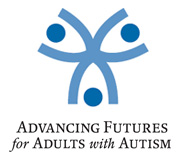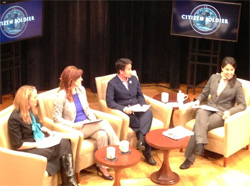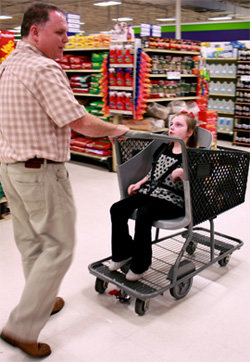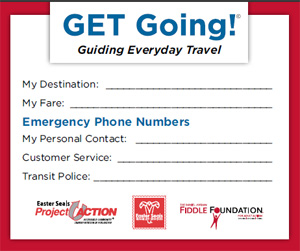Applauding exemplary adult autism service providers
by Patricia Wright
 Easter Seals is a member of the leadership council for Advancing Futures for Adults with Autism (AFAA). Led by the vision of individuals with autism and their families, AFAA is a national consortium of organizations working together to promote a collaborative spirit and develop both public and private sector support that improve the lives of adults living with autism.
Easter Seals is a member of the leadership council for Advancing Futures for Adults with Autism (AFAA). Led by the vision of individuals with autism and their families, AFAA is a national consortium of organizations working together to promote a collaborative spirit and develop both public and private sector support that improve the lives of adults living with autism.
Let’s be real: the needs of adults with autism are significant. In an effort to address these needs, AFAA Recently launched AFAA Applauds, a national initiative recognizing innovative, high-quality support programs for adults living with autism. Through a competitive application process, AFAA selected six organizations for their exemplary results in oriented employment, residential support and community life programs (community life includes social skills, transportation, recreational, safety, spirituality or other categories of service that improve life experiences and outcomes for those living with autism).
Each AFAA Applauds winner received a $5,000 grant to develop a video about the program. The videos will be released in April, and AFAA will promote the videos through multiple communication channels. The inaugural winners of AFAA Applauds are:
- Autism Services Inc., New York
Autism Services Inc. helps individuals with autism become involved in the visual and performing arts and has improved their quality of life. - Chapel Haven, Connecticut
Chapel Haven’s supported living program assists individuals with autism as they obtain jobs, gain a network of friends and participate in a vibrant community life. Chapel Haven’s program sets a high standard for excellence. - Eden Autism Services, New Jersey
Eden Adult Services’ multifaceted adult employment program promotes the meaningful engagement of adults with autism in their communities through paid employment and active volunteer service. The program has created successful employment opportunities for individuals with autism. - Family Adult and Child Therapies (FACT), California
The Generating All Possibilities 4-year program at FACT supports individuals with autism as they make informed decisions about work, college and where to live. The program helps prepare adults with autism for the future. - Partnerships with Industry (PWI), California PWI provides adults with autism the opportunity to find employment. PWI has helped individuals with autism reach their potential and experience independence.
- The Friendship Circle, California
The Friendship Circle fosters spiritual, social, and educational experiences for individuals with autism. The program has created activities that bring value to the lives of individuals with autism.
Keep an eye out for the videos. They are in production now, and we will let you know here when you can access the AFAA Applauds videos and learn more about these fantastic programs.







 Last week Sen. Tom Harkin (D-Iowa) announced he will not seek a sixth term in the U.S. Senate, and this past Tuesday
Last week Sen. Tom Harkin (D-Iowa) announced he will not seek a sixth term in the U.S. Senate, and this past Tuesday 
 It’s really a ridiculous two solid hours of TV every Monday night. But much to my husband’s utter dismay, the two hours of 26 twenty-somethings’ quest for love with one man — oozing with steamy and obnoxious “reality” dating glory — is something I can’t seem to shake. I am, of course, talking about ABC’s
It’s really a ridiculous two solid hours of TV every Monday night. But much to my husband’s utter dismay, the two hours of 26 twenty-somethings’ quest for love with one man — oozing with steamy and obnoxious “reality” dating glory — is something I can’t seem to shake. I am, of course, talking about ABC’s  Our son Gus has developmental disabilities and uses a wheelchair. He’s 26 years old now and has been living in a group home since he was 16. One thing he always liked doing with us when he lived at home? Grocery shopping.
Our son Gus has developmental disabilities and uses a wheelchair. He’s 26 years old now and has been living in a group home since he was 16. One thing he always liked doing with us when he lived at home? Grocery shopping.

 The Miss America pageant is tomorrow, and I’m rooting for Miss Montana. I traveled to Montana last year to give an
The Miss America pageant is tomorrow, and I’m rooting for Miss Montana. I traveled to Montana last year to give an